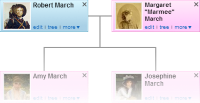


Skipsea Castle, built in about 1086, was the residence and administrative centre of the lords of Holderness. William the Conqueror created the lordship of Holderness, a vast area from the Humber estuary to Bridlington. He gave it to Drogo de la Beauvriére, who had fought alongside him at the Battle of Hastings in 1066. The king needed a trusted follower there to control the area and the adjacent coastline. There are various interpretations regarding the castle earthworks. This reconstruction drawing, depicting the castle in 1160, shows an inner bailey within a seasonally flooded marshy area. Drawing by Peter Dunn. Drogo built Skipsea castle as a principal residence and his successors, the counts of Aumale, held the seat for the next 130 years. In the 12th century, Count William le Gros created a fortified settlement or 'borough' possibly located on the ridge, where houses and shops fronted onto a roadway. It provided him with an income from tolls and rents. Use of the castle declined from about 1200 when the lords of Holderness moved their administrative residence to Burstwick. The castle was ordered to be destroyed in 1221 when Count William de Forz II rebelled against the king. By 1350, the castle was being leased for pasture and the borough was abandoned.
Skipsey Coat of Arms / Skipsey Family Crest
This English surname of SKIPSEY is a locational name meaning 'one who came from SKIPSEA' in the North Riding of Yorkshire. The name was derived from the Old Scandinavian word SKIP-SIOR, meaning the dweller near a lake or harbour for ships. The Scandinavian element in English place names is very considerable. It is an outcome of the extensive Scandinavian settlements made in England from the latter half of the ninth century onwards. They were mostly Danes, but in the north-western parts of the country such as Cheshire, Lancashire, Westmorland, Cumberland and West Yorkshire, the settlers were mostly Norwegians. Many English names adopted by Scandinavians were changed in form to conform better to Scandinavian habits of speech. The earliest of the place-name on record appears to be SKIPSE, which was recorded in Yorkshire in the year 1170, and SCIPSE was documented in the year 1226. Surnames can be divided into four categories; place names, occupation names, nicknames and patronymics. PLACE NAMES are the largest group and covers all those names first applied to people who lived in or nearby to a particular place. For example, Grove, Wood, Field, Meadow, and Street are obvious. Occasionally names were taken from obscure villages or hamlets which no longer exist and this can make research confusing. OCCUPATION NAMES cover nearly all trades which existed in the Middle Ages. These are numerous. It does not necessarily follow that such names as King, Duke, Earl and so on mean your ancestors were of noble blood. It is much more likely that such named people worked for the person referred to. NICKNAMES. This is a smaller group but in many ways more interesting. They usually originated as a by-name for someone by describing their appearance, personal disposition or character but which became handed down through the ages and did not apply to their descendants. For instance the name Black would denote a dark man, Little, someone small (or even somewhat ambiguously) someone tall. PATRONYMICS. This group covers all names which derive immediately from the owner's father. Many christian names which are also surnames have, over the years, lost the possessive form but the origin is still the same. Examples of this could be names such as Peter,Thomas, Henry - all names which became both christian and surnames over the years. A later instance of the name includes SHIPSE, which was recorded in Yorkshire in 1294